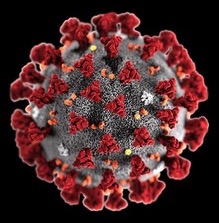Hospital care in Departments defined as COVID-free: A proposal for a safe hospitalization protecting healthcare professionals and patients not affected by COVID-19

All claims expressed in this article are solely those of the authors and do not necessarily represent those of their affiliated organizations, or those of the publisher, the editors and the reviewers. Any product that may be evaluated in this article or claim that may be made by its manufacturer is not guaranteed or endorsed by the publisher.
Authors
The COVID-19 pandemic influenced the normal course of clinical practice leading to significant delays in the delivery of healthcare services for patients non affected by COVID-19. In the near future, it will be crucial to identify facilities capable of providing health care in compliance with the safety of healthcare professionals, administrative staff and patients. All the staff involved in the project of a Covid-free hospital should be subjected to a diagnostic swab for COVID-19 before the beginning of healthcare activity and then periodically in order to avoid the risk of contamination of patients during the process of care. The modifications of various activities involved in the process of care are described: outpatient care, reception of inpatients, inpatient ward and operating room. For outpatient care, modality of appointment procedure, characteristics of waiting room and personal protective equipment (PPE) for healthcare professionals and administrative staff are presented. Reception of inpatients shall be conditional on a negative swab for COVID-19 obtained with a drive-in procedure. The management of the operating room represents the most crucial step of the patient's care process. The surgical team should be restricted and monitored with periodic swabs; surgical procedures should be performed by experienced surgeons according to standard procedures; surgical training experimental treatments and research protocols should be suspended. Adequate personal protective equipment and measures to reduce aerosolization in the operating room (closed circuits, continuous cycle insufflators, fume extraction) should be adopted. Prevention of possible transmission of the virus during procedures in open, laparoscopic and endoscopic surgery is to use a multi-tactic approach, which includes correct filtration and ventilation of the operating room, the use of appropriate PPE (FFP3 plus surgical mask and protective visor for all the staff working in the operating room) and smoke evacuation devices with a suction and filter system.
on behalf of the UrOP Executive Committee
Giuseppe Ludovico, Angelo Cafarelli, Ottavio De Cobelli, Ferdinando De Marco, Giovanni Ferrari, Stefano Pecoraro, Angelo Porreca, Domenico Tuzzolo
How to Cite
PAGEPress has chosen to apply the Creative Commons Attribution NonCommercial 4.0 International License (CC BY-NC 4.0) to all manuscripts to be published.

 https://doi.org/10.4081/aiua.2020.2.67
https://doi.org/10.4081/aiua.2020.2.67



